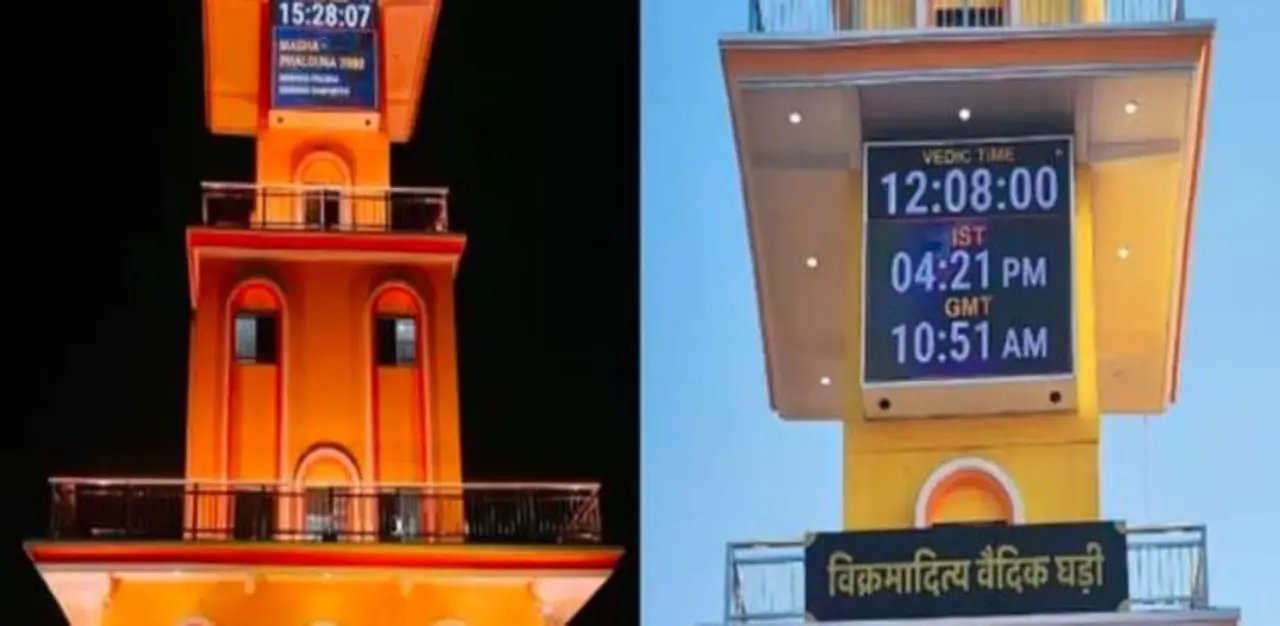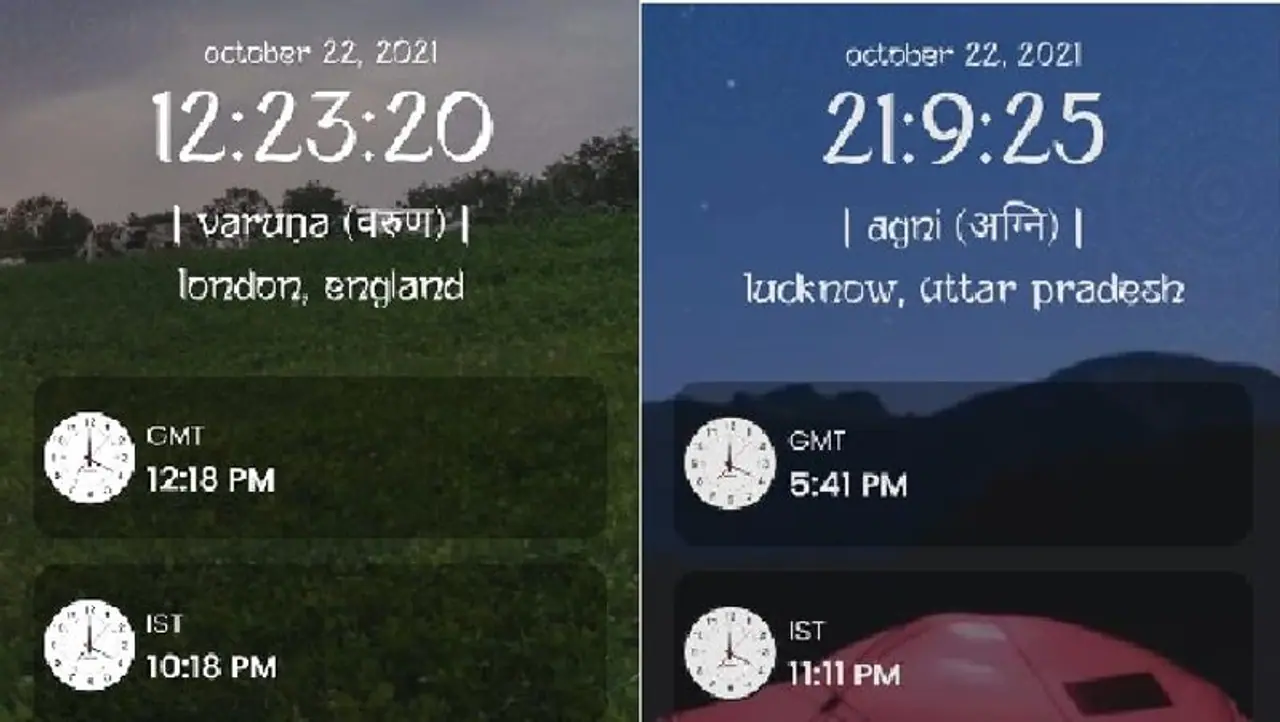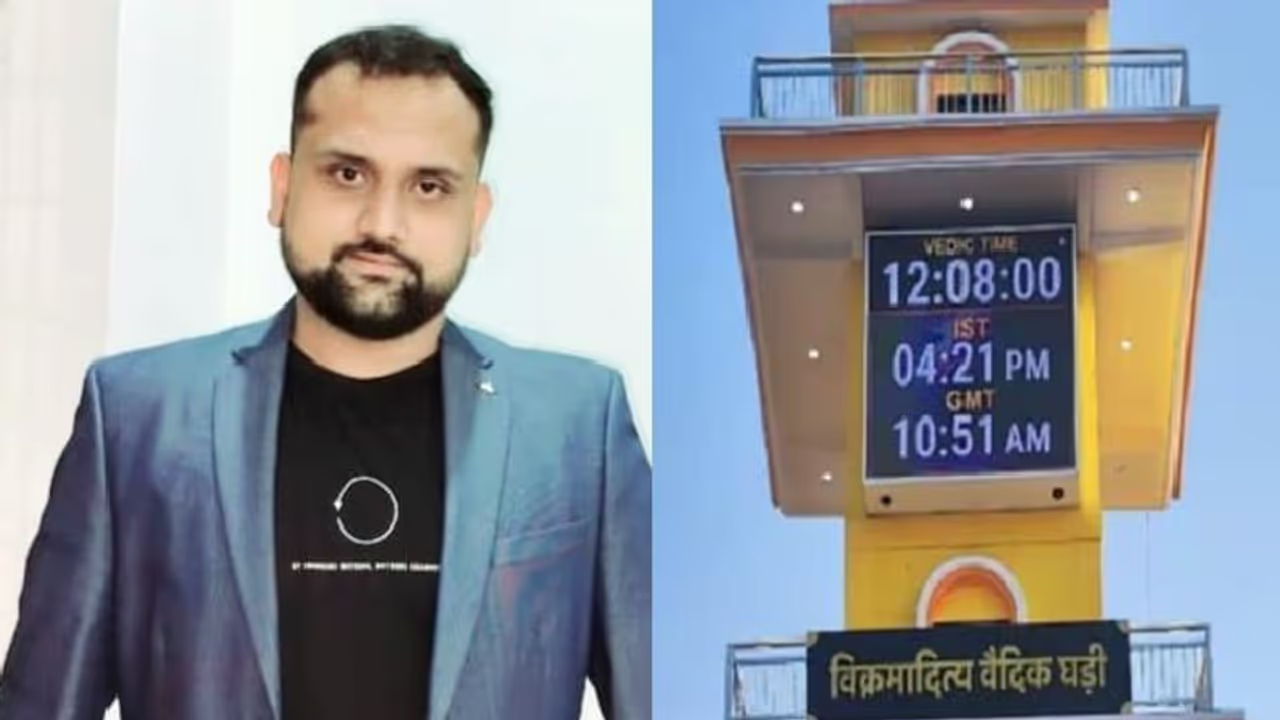Aaroh Srivastava quit his Merchant Navy job in the year 2017. After that he embarked on his mission to develop a Vedic clock. In his journey, he faced numerous setbacks, but he remained steadfast in the pursuit of his dreams. In 2020, he successfully invented a successful formula for the Vedic clock.
Lucknow: Aaroh Srivastava is a resident of Lucknow, Uttar Pradesh. In the past, he was employed in the Merchant Navy and was posted in England. One day, an unusual thing happened to him, when he observed that the day lasted 26 hours while aboard a ship. This remarkable experience sparked his interest in time calculation methods. Subsequently, after conducting his research, he developed the world’s first Vedic digital clock. This clock calculates time based on Vedic principles and astrological timings. Vedic clock has been installed in Ujjain, Madhya Pradesh, attracting attention from many.
Prime Meridian
Aaroh Srivastava completed his schooling from Gurukul Academy in Lucknow, Uttar Pradesh. Then, he pursued a degree in Mechanical Engineering. He wanted to explore the world and this desire prompted him to study Merchant Navy at a college in England. During a visit to the Greenwich Museum, he learned that the Prime Meridian could have been positioned anywhere on the globe. However, the first research was conducted at the Royal Observatory in Greenwich, England, which is why the place came to be known as the Prime Meridian.
Stories from the past
As Aaroh learned more about the origins of time and calendar, his curiosity regarding the true location of the Prime Meridian Line arose. He learned that in the 19th century, Ujjain in Madhya Pradesh was the hub for time calculation in India, and the Prime Meridian for India was situated there. However, in 1884, it shifted to Greenwich due to the scientific studies conducted at that place.
First mechanical watch
Aaroh Srivastava shares that his worked required him to travel frequently. When he conducted his research about time, he learned about the 24-hour-cycles in ancient Egyptian civilization. France had developed the first mechanical watch based upon this. The watch was later adopted by the East India Company. This innovation was a significant invention of its time.

What is the difference?
Vedic digital watch differs from an ordinary watch because it calculates time according to ancient Indian Vedic principles. It focuses on auspicious timings determined by the position of the sun and constellations. In this Vedic system, time is divided into units such as Muhurta, Kaal, and Kashtha, across a time frame of 30 hours, 30 minutes and 30 seconds. These units hold great significance in the Indian calendar.
The time frame
Aaroh mentions that the concept of time format was first discussed in the Rigveda, which calculated time from one sunrise to the next. The time frame of Vedic clock includes 30 hours (Muhurta), 30 minutes (Kaal), and 30 seconds (Kashtha), as compared to the 24-hour system of traditional clocks. Furthermore, earth’s rotation does not affect the working of a Vedic clock. At sunrise, it displays zero, and changes the date at the next sunrise.
Exploring India on a bicycle
Aaroh Srivastava quit his Merchant Navy job in the year 2017. After that he embarked on his mission to develop a Vedic clock. In his journey, he faced numerous setbacks, but he remained steadfast in the pursuit of his dreams. In 2020, he successfully invented a successful formula for the Vedic watch. Next, he wished to make it accessible to people. He also wanted to gain insights from experts in Indian chronology, like astrology and spiritual gurus. To achieve this goal, he embarked on a mission to travel to 12 Jyotirlingas and Char Dham sites on a bicycle in 2020.

First Vedic clock in Ujjain
During his life-changing cycle journey across India, Aaroh gained immense knowledge about Indian time calculation methods. He talked to astrologers and gurus and learned about the Sanatan Dharma practice of determining auspicious timings. At last, Aaroh developed a final model of Vedic clock which garnered him widespread attention. Indian astrologers approved his innovation as well. Now, the Vedic clock has been in installed in Ujjain, which is being recognized as the world’s first Vedic clock.
Launching a mobile application
The time between two sunrises, in Vedic digital clock, is divided into 30 parts, and at sunrise it displays zero. For convenience, the clock also displays standard time. On 9 April 2024, a digital clock application will be launched that would allow the users to check Vedic time on their mobile devices, free of charge. In the future, there are plans to introduce table and wall clocks as well.
